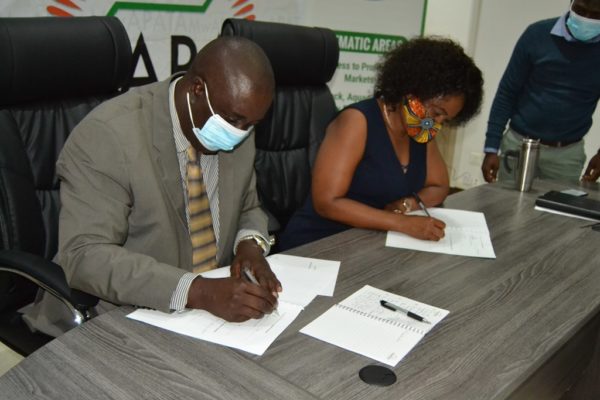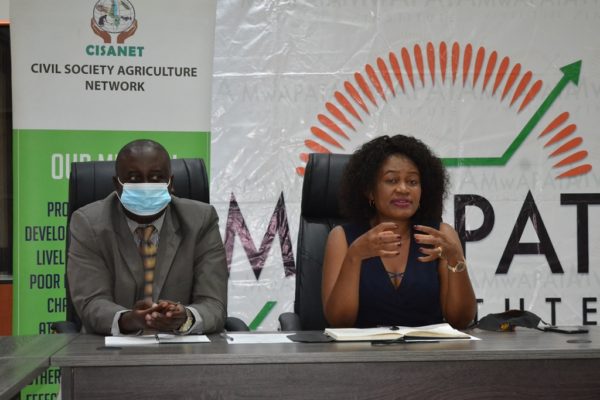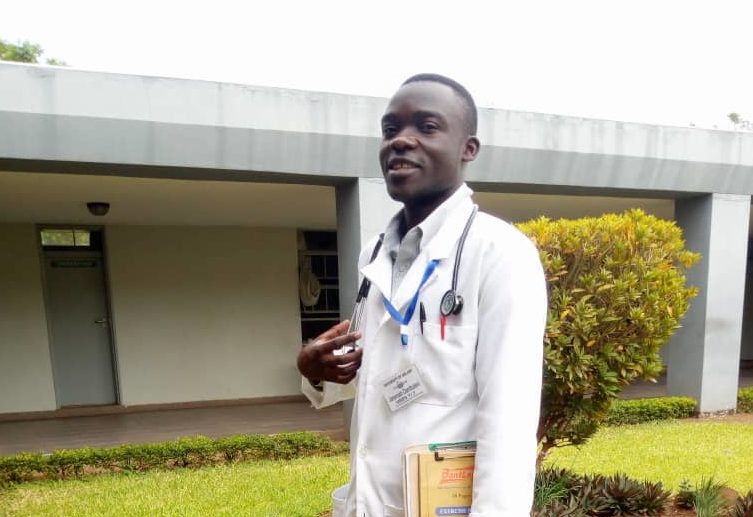MwAPATA, CISANET sign pact to enhance collaboration in pushing for policy change, realization of national development goals
The Malawi Agriculture Policy Advancement and Transformation Agenda (MwAPATA Institute), and the Civil Society Agriculture Network (CISANET) have signed a memorandum of understanding (MoU) that aims at enhancing the collaboration in pushing for the realization of the country’s development agenda as espoused in the Malawi 2063 document.









MwAPATA is a local agriculture research think tank while CISANET is a policy advocacy organisation, working on agriculture and food security policy issues affecting the smallholder farmers and their livelihoods.
The two institutions signed the pact at a brief function that took place at the MwAPATA Institute’s head office in Lilongwe on Wednesday morning.
MwAPATA Institute acting executive director William Chadza described the pact as very crucial for Malawi in moving and also turning Malawi 2063 Vision.
Chadza said Malawi needs to transform her agricultural sector if the country is to achieve one of the pillars under the vision, which is agricultural productivity and commercialization.
“For that transformation to happen, it is important that research is also undertaken to contribute towards that. Research will be important so that right decisions are made, the right resources are allocated and also the right programmes are undertaken to ensure that we increase both productivity and enhance commercialization of the agriculture sector,” he said.
“So, we believe that signing the MoU with CISANET is going to be very important because we are going to provide them with empirical evidence, which they can use for their advocacy work, which they use in terms of engaging and also influencing various decisions in the agriculture sector. So, research is very important,” added Chadza.
He said MwAPATA Institute expects that the partnership will enrich their research agenda, particularly how they define their demand-driven research.
Chadza said following the signing of the pact, they expect their studies to be informed by what is happening on the ground since CISANET has a wider membership in terms of civil society organizations (CSOs).
“It also has got a wider reach in terms of what is happening on the ground; in terms of programmes happening at the community level. So, we are going to get a much more comprehensive picture in terms of what is happening on the ground and also the various players, which are out there. One of the objectives is to look at stakeholder mobilization in terms of building consensus on issues. So, that means it will be very important for us to have a good understanding of what other players are doing,” he stated.
“As you are aware, MwAPATA Institute is also affiliated with the National Planning Commission, which has got the responsibility to look at the overall programmes by various sectors in driving towards Malawi 2063. Therefore, I think that this gives us an opportunity to understand what other players are doing and what gaps exist. Then we can move much more effectively,” narrated Chadza.
In her remarks, the CISANET national coordinator Pamela Kuwali said the network expects to benefit from the partnership through use of the research evidence or findings that generated out of MwAPATA Institute’s work.
“This partnership is so important for us because as a network of organizations that are working in the agriculture sector, but also facilitating policy dialogue on agriculture, evidence is so important us. So, as you know MwAPATA Institute is a research institution. They have done a lot of good work and they continue to do so. So, this partnership will enable us to benefit from the research that they are conducting as it enhances the quality of advocacy products that we produce, but also the level of engagement that we will be doing with the government,” said Kuwali.
She added that this will also enable them to present to the government issues that that are backed by evidence.
“But also the most important thing is that I think previously the challenge has been that there are all these research institutes. They do a lot of work. But somehow that work just ends there. They produce the policy briefs, they post it on their website, but the channel to make sure that they are brought to the table with the government officials is not always there. So, this is going to effectively link MwAPATA Institute to also engage with the government as we collect the evidence and use it as we talk to the government, the ministers, PS and other government officials,” said Kuwali.
She said this is going to contribute towards the agriculture transformation goal.
Follow and Subscribe Nyasa TV :



I guess the partnership isn’t a bait to get some funding to fulfill personal goals
Mabugwe tho kobela ndalama ma donors ndi boma funding basi. Ife alimi enuake tili mbu osasalala . Mitengo ya mbeu mungotipondereza. Pomwepa pa Tanzania Magufuli anatukula alimi chifukwa samachita za chinyengo ayi. Inu mmasuti kaka pamene anthu mukuwayimirawo nsanza zokhazokha. Akati mupita kunja mumanka nokha kapena kutenga abale anu. Tasinthani makhalidwe amalawi naone nzeru zanu ngatidi muli nazo.